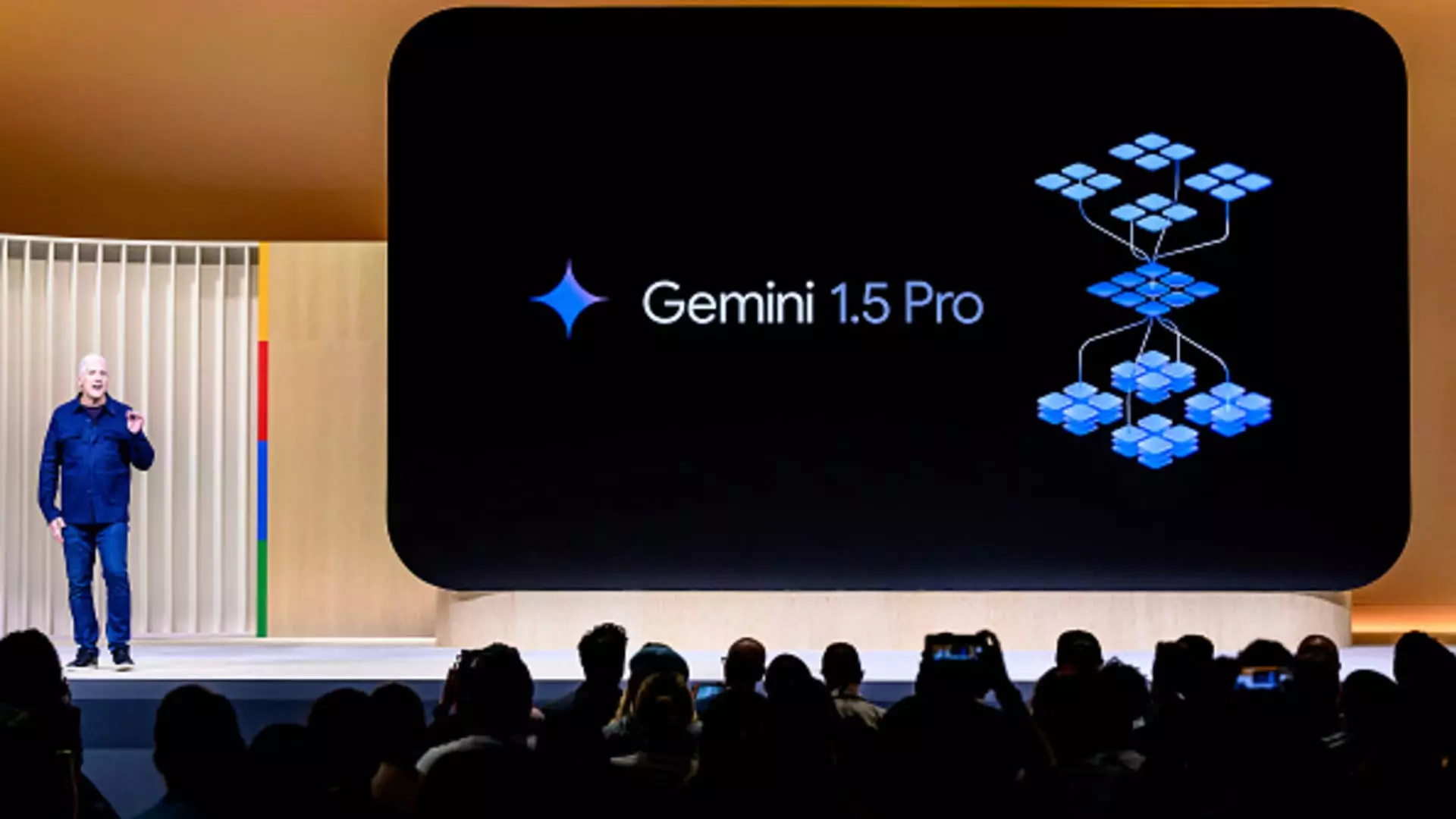During Google’s recent Pixel phone launch event, the product director David Citron faced some technical glitches and demo failures while showcasing the capabilities of the new AI assistant, Gemini. The live demonstration, which included checking the calendar for a concert date, failed to work properly and resulted in errors being displayed. Despite multiple attempts and a phone swap, the demo eventually succeeded. Such incidents highlighted the challenges of live demos and the risks associated with showcasing cutting-edge technology in real-time.
The buggy demo of Gemini at the launch event also shed light on Google’s advantage in the realm of artificial intelligence features in smartphone software. While competitors are also investing in AI capabilities, Google’s Gemini features are already shipping for testing purposes, giving the company an early lead in this rapidly evolving field. The live demos of practical AI applications signified a shift towards product availability and real-world implementations rather than just projecting a vision of the future.
Apple’s Approach to AI and Integration Challenges
Apple, one of Google’s primary competitors in the smartphone market, has also been focusing on integrating AI into its devices. While the company announced significant improvements in its AI assistant Siri under Apple Intelligence, the availability and testing of key features such as image generation and ChatGPT integration remain limited. Apple’s scripted live testing with media and analysts showcased the potential of AI on current devices, but the full extent of Siri’s capabilities is yet to be realized.
As Google and Apple compete to integrate AI into their operating systems, the smartphone market is witnessing a rapid evolution towards AI-capable devices. With the rise of “Gen AI” smartphones and the increasing emphasis on AI processing in devices, both companies are under pressure to deliver innovative AI features to consumers. Google’s presentation of multimodal AI capabilities and the next-generation assistant Gemini underscored the company’s commitment to AI research and development.
Comparing Google’s Gemini Live with Apple’s Siri
The comparison between Google’s Gemini Live and Apple’s Siri reveals distinct approaches to AI integration. While Google focused on natural conversation and deep research capabilities with Gemini, Apple highlighted image generation and ChatGPT integration under Apple Intelligence. The competition between the two tech giants reflects the broader trend of AI advancements in smartphones and the growing importance of AI processing in device functionalities.
Google’s “Complete End-to-End Experience” vs. Apple’s Integration Expertise
In a press release following the launch event, Google emphasized its integrated AI strategy as a unique selling point, positioning its AI assistant as a “complete end-to-end experience” that only Google can deliver. This statement challenged Apple’s long-standing claim of integration expertise in creating seamless hardware and software experiences. The rivalry between Google and Apple in the AI space highlights the competitive nature of the tech industry and the quest for AI supremacy in the smartphone market.
Overall, Google’s launch event for the Gemini AI assistant showcased the company’s advancements in AI technology and its commitment to delivering innovative AI features to consumers. Despite technical glitches and demo failures, the live demonstration highlighted the practical applications of AI in everyday scenarios. As the race to integrate AI into operating systems intensifies, both Google and Apple are pushing the boundaries of AI capabilities in smartphones, setting the stage for a new era of intelligent devices.


Leave a Reply
You must be logged in to post a comment.